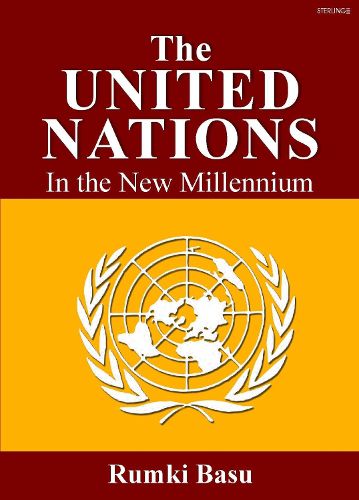Readings Newsletter
Become a Readings Member to make your shopping experience even easier.
Sign in or sign up for free!
You’re not far away from qualifying for FREE standard shipping within Australia
You’ve qualified for FREE standard shipping within Australia
The cart is loading…






We are now entering a world of greater plurilateralism, one that recognizes the shortcomings of multilateralism, the limits of bilateralism and the untenability of unilateralism. The current global situation has opened up spaces for more decentralised globalisation offering more opportunities to many more middle powers to participate actively in the international arena. What will the new order look like in the 21st century? The UN's conflict prevention, peace-making and building role in regional conflicts, interstate and intrastate wars, and terrorism are serious developments coexisting with major power elitism, cross-veto, and implementation gaps. Universal membership of 193 countries makes consensus-building elusive. Big powers resort to unilateralism, regionalism, plurilateral and issue-based strategic groupings acting on their perceived national interests. The United Nations, therefore, enters the post globalized era in the 21st century as a central point of constancy in an age of flux. Through years of patient effort, it has achieved a complementarity in the working of its different organs which makes it the only organ most suited to fulfil its arduous tasks, thereby justifying its sustainability over 75 years. This new revised edition of the book looks at the old and new mandates of the United Nations today.
$9.00 standard shipping within Australia
FREE standard shipping within Australia for orders over $100.00
Express & International shipping calculated at checkout
We are now entering a world of greater plurilateralism, one that recognizes the shortcomings of multilateralism, the limits of bilateralism and the untenability of unilateralism. The current global situation has opened up spaces for more decentralised globalisation offering more opportunities to many more middle powers to participate actively in the international arena. What will the new order look like in the 21st century? The UN's conflict prevention, peace-making and building role in regional conflicts, interstate and intrastate wars, and terrorism are serious developments coexisting with major power elitism, cross-veto, and implementation gaps. Universal membership of 193 countries makes consensus-building elusive. Big powers resort to unilateralism, regionalism, plurilateral and issue-based strategic groupings acting on their perceived national interests. The United Nations, therefore, enters the post globalized era in the 21st century as a central point of constancy in an age of flux. Through years of patient effort, it has achieved a complementarity in the working of its different organs which makes it the only organ most suited to fulfil its arduous tasks, thereby justifying its sustainability over 75 years. This new revised edition of the book looks at the old and new mandates of the United Nations today.